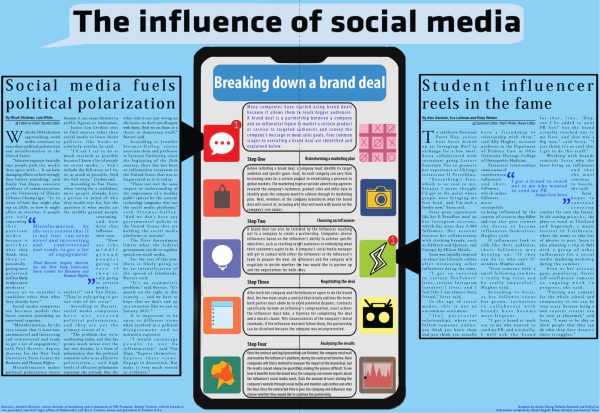Perfectionism is not a perfect mindset
When junior Tacy Guest applied for The Island School marine biology program for summer 2021, she worked through a lengthy application process that required her to submit essays, her GPA and letters of recommendation. Guest believes she has perfectionist tendencies, and when she discovered she was waitlisted from the program, she was devastated.
“It’s really hard as a perfectionist to get back a rejection letter.
“Like, why? … What could I have done to make it better?” said Guest in a video conference. “And sometimes you couldn’t have done anything.”
Gordon Flett, professor at York University in the Department of Psychology and Canada Research Chair in Personality and Health, said in a phone interview that perfectionists sort of stigmatize themselves for not being perfect.
According to Guest, she was very unhealthy with her perfectionism until around March 2020, reacting with tears, frustration and self doubt if she did not achieve a certain goal.
“I didn’t like anything that wasn’t a perfect grade or a really, really high A,” Guest said.
According to Flett, there are different dimensions of perfectionism. Self-oriented perfectionism is the inner need and relentless striving to meet extreme standards, other-oriented perfectionism demands perfection from others and socially-prescribed perfectionism is the feeling or perception of being the target of such expectations.
Clinical psychologist Margaret Jordan said in a phone interview that there is a difference between striving for excellence and striving for perfection.
“For somebody who strives for excellence but is not a perfectionist, they would be operating according to an idea that they want to do well, they want to do the best that they can,” said Jordan. “They feel disappointed if they fall short of that, but it doesn’t feel like it ruins things for them.”
Junior Eva Sadowski said in a video conference that she strives for excellence in her classes and extracurricular activities but does not feel she is a perfectionist.
“I always try to put my best effort into school assignments and not be too hard on myself,” Sadowski said.
According to Flett, those who strive for excellence rather than perfection are less stressed and are probably less preoccupied with comparing themselves to others. They are also likely to have more self-compassion and less self-criticism.
“People need to be mindful,” said Flett. “They need to learn to breathe and relax and live in the moment.”
According to Sadowski, “You can’t let small things get to you.
“Think about if it’s going to matter in five years and if it doesn’t, then just move on, take a breath and just keep going.”
According to Guest, instead of beating herself up about a grade that does not meet her expectations, she now uses that to motivate herself for the next assignment.
“You should try to do your best as often as you can, but there are some things in life like awards or like grades that are not attainable.
“You can’t always get 100 percent, you can’t always even get an A, you can’t always get an award you wanted or get into a program you wanted to get into,’’ Guest said.




